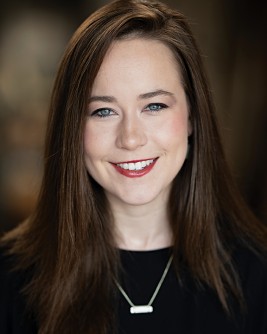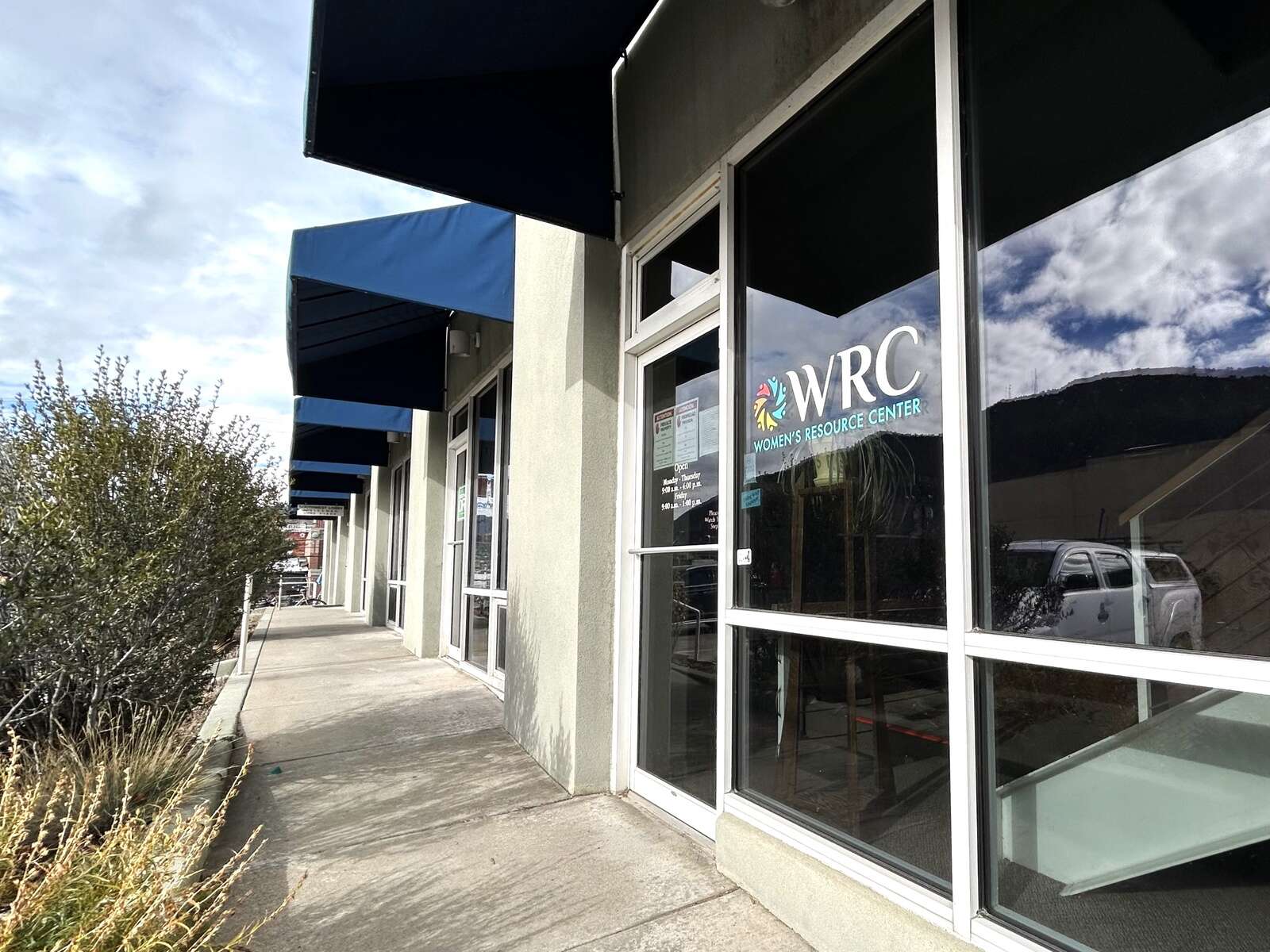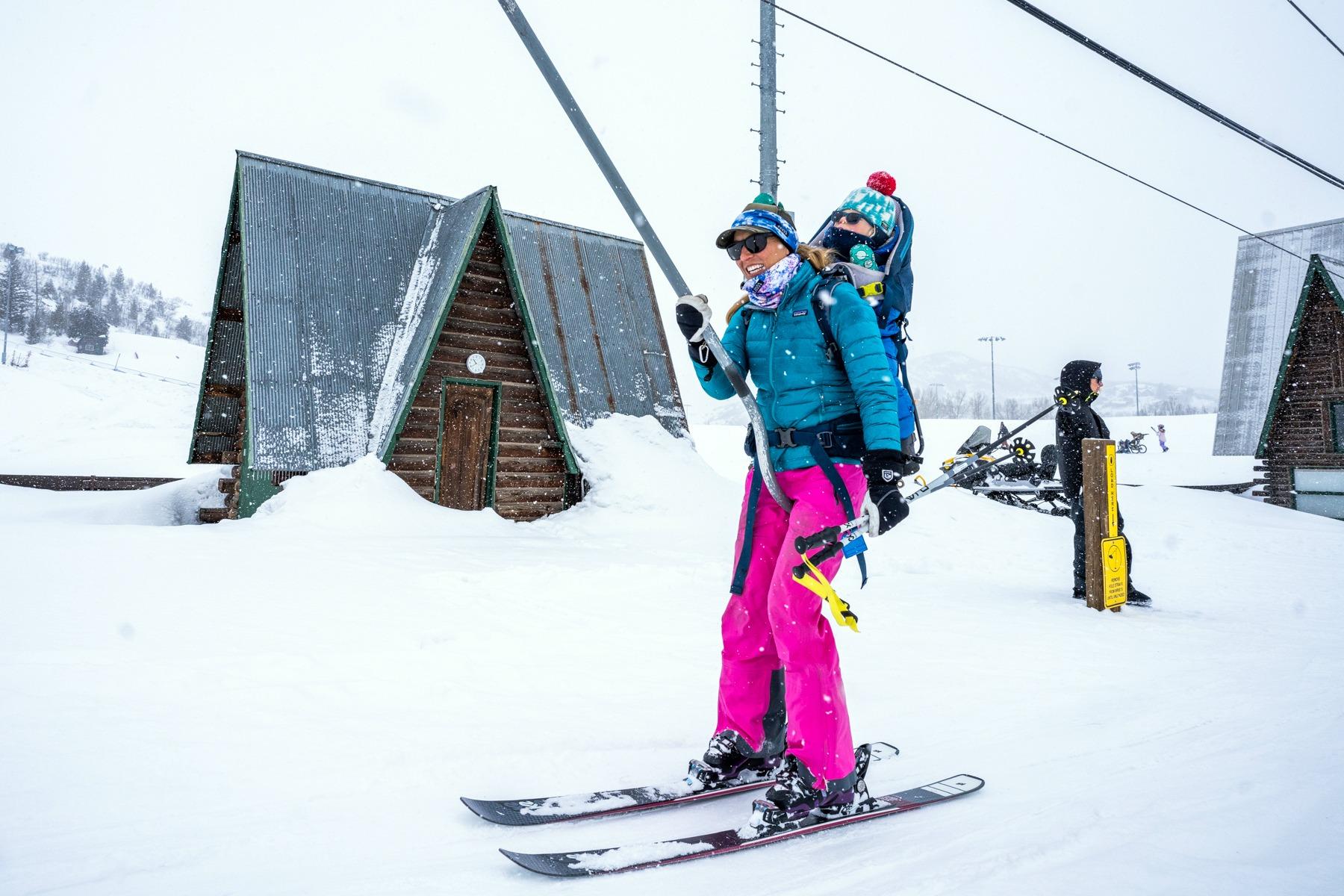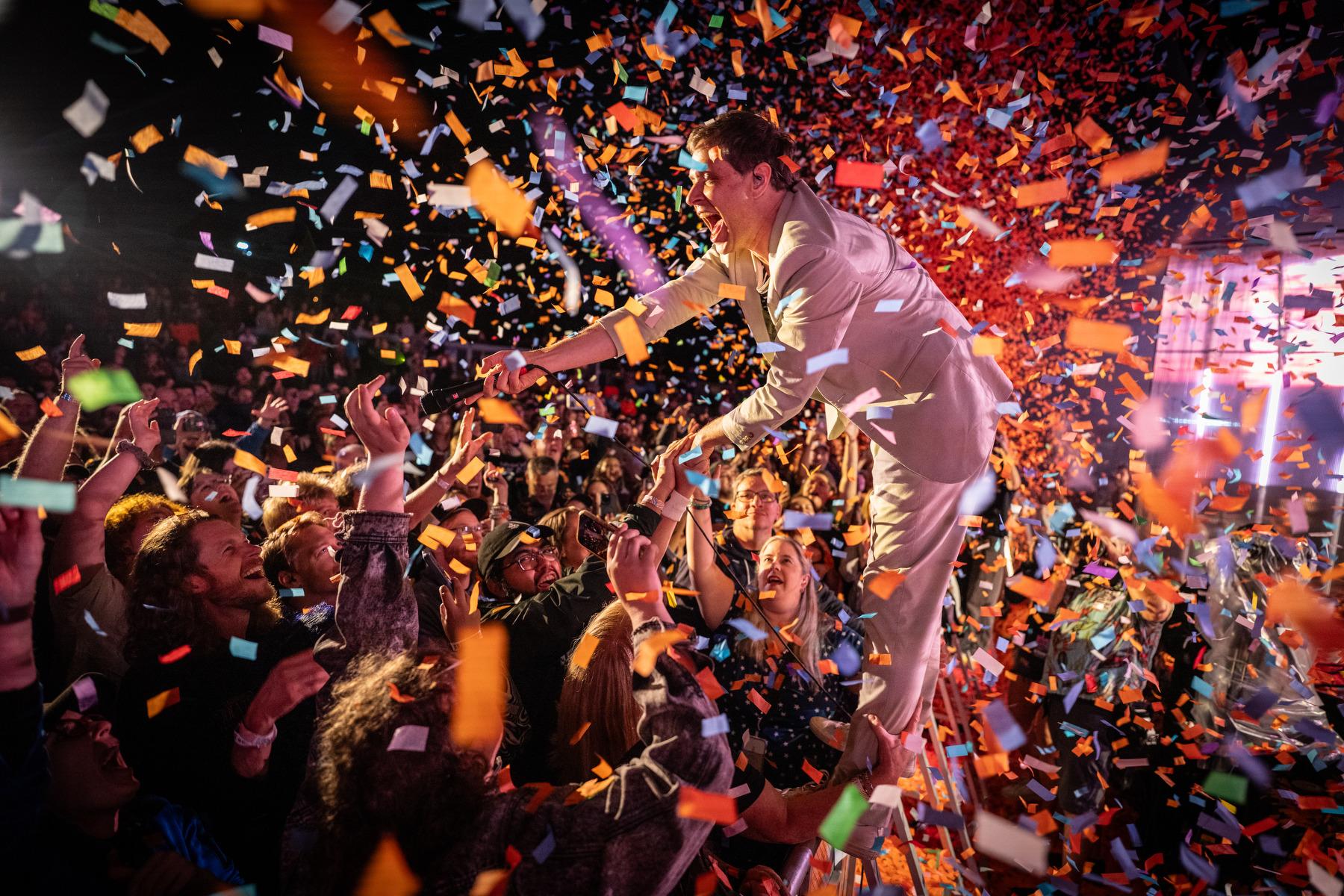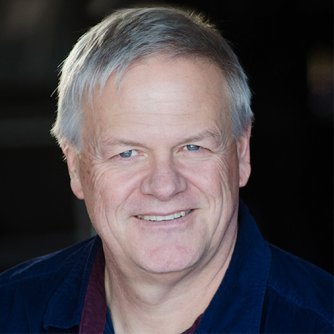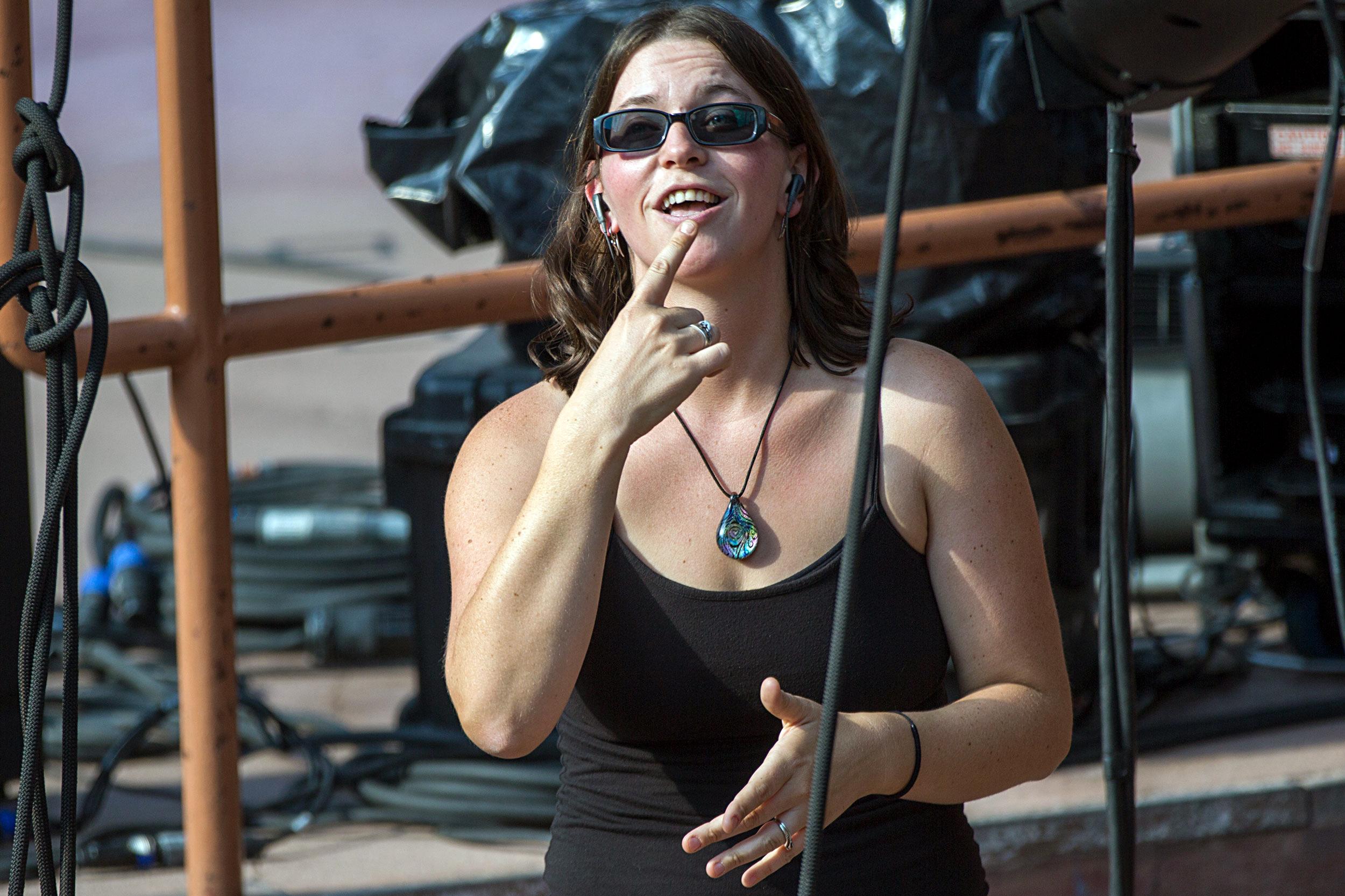
The lights come up. The first beats of the drum and the vibration of the bass reverberate through Red Rocks Amphitheatre, where great sandstone slabs jut into the sky, surrounding the audience, and the energy is electric. As the lead singer steps up to the microphone, at the corner of the stage an interpreter translates the lyrics into American Sign Language and uses her whole body to communicate the emotion and feel of the song.
“There are a lot of hearing people who seem to think that deaf and hard of hearing people can’t enjoy music,” said Rachel Berman, a concertgoer who is deaf. She has residual hearing and uses a hearing aid that allows her to hear some lower tones, but she said she struggles with the high notes and cannot make out words. She pointed out that other concert goers may not hear a single note, but they can still feel the pounding rhythms.
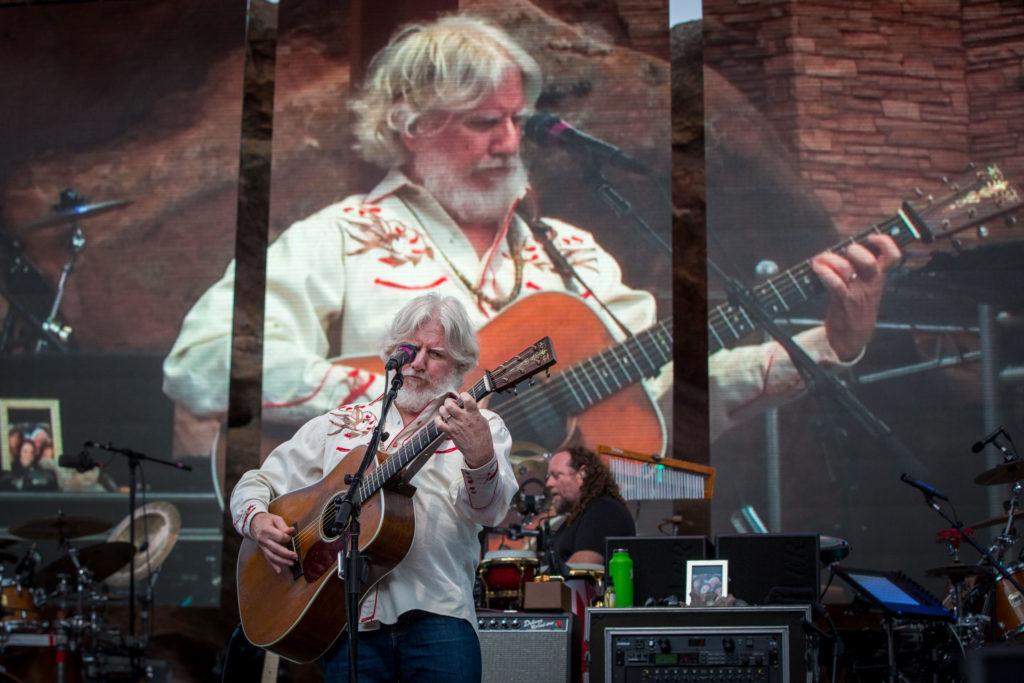
“So to go to a concert with an interpreter provided, they give me the words, the accessibility,” said Berman. “That means that deaf and hard of hearing people can enjoy the music. It’s very visual. We can see it. Plus we’re provided the words through the interpreter. So overall, it’s just a different way of viewing and experiencing the music. But we still can enjoy it.”
Her favorite concert? Metallica, which came with a hair-raising performance, bright lights and intense drums.
Natalie Austin interpreted that show as she has many others, at Red Rocks and venues around the state. Two years ago, she co-founded FLOW, a sign language interpreting agency that specializes exclusively in performing arts.
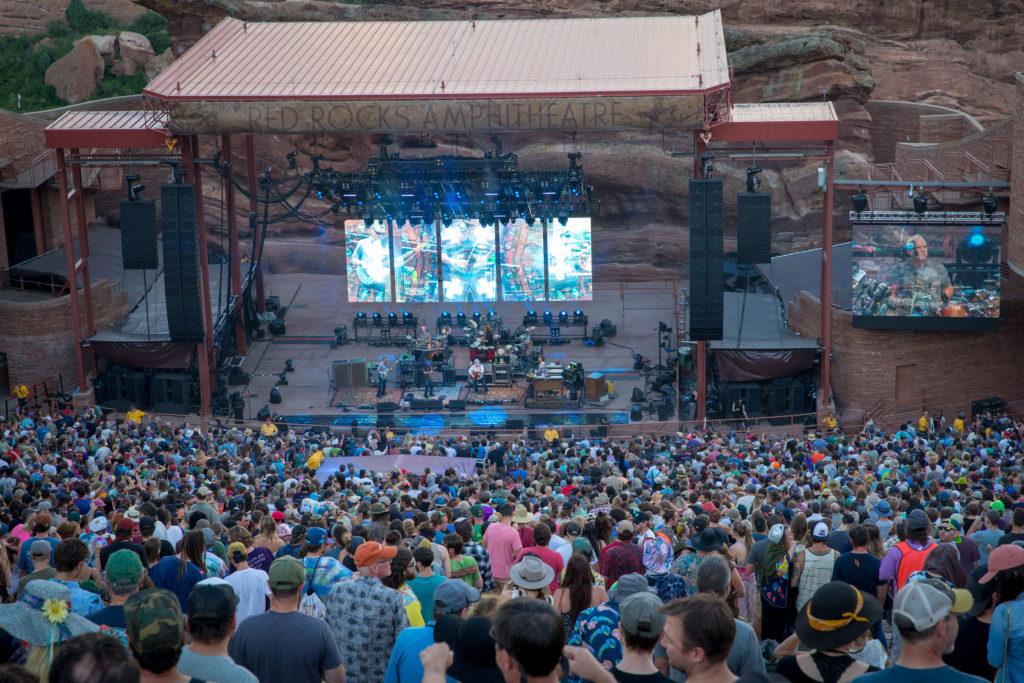
“It’s a personal passion project for me because I know how important the music and the arts is in my life that I want to do everything in my power to make it accessible to people who are deaf and hard of hearing,” said Austin.
Hearing loss is something Austin has grappled with herself. She was born with a condition that causes progressive hearing loss. When she was 13 years old, doctors recommended she learn ASL because she could lose the rest of her hearing rapidly. She studied Deaf Education, and spent years working in schools. That experience and her passion for the arts grew into FLOW, which interprets art events from jam bands to musical theater.
Performance ASL interpreting requires requires a high level of preparation and creativity.
Ahead of a concert, Austin will research an artist's top songs, and set lists from previous performances. She looks up the lyrics, and translates them into ASL. That’s a challenge because ASL is a distinct language with its own idioms, and its word order is different from English.
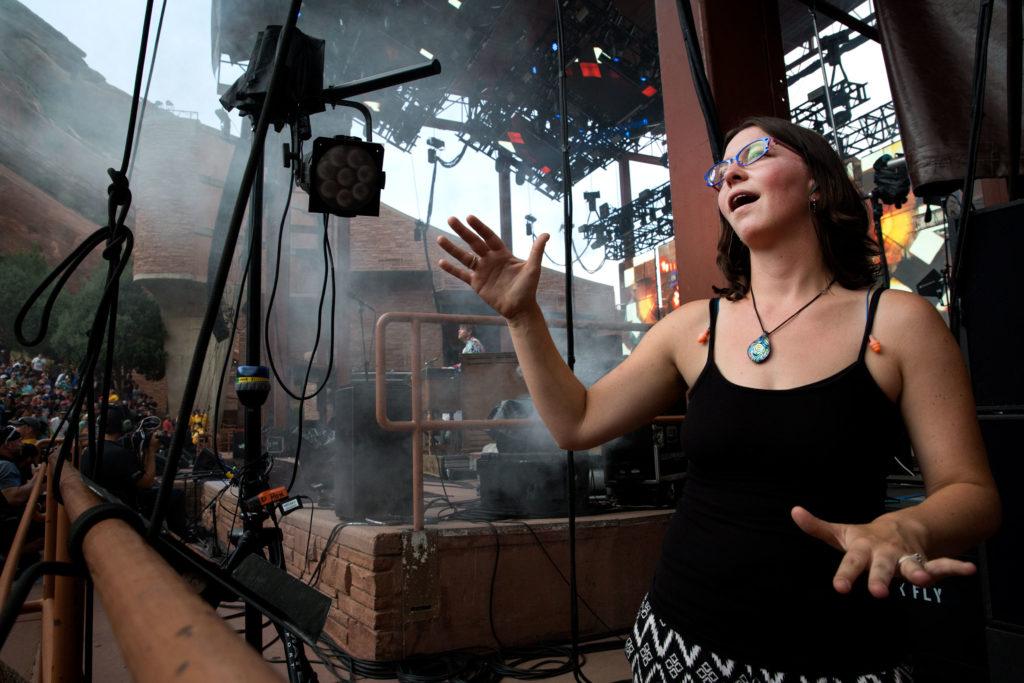
“Rap definitely is one of the most difficult genres, I would say, to interpret,” said Austin. “Because a lot of times, when they do improvise, it’s nonsensical improvisation. And so they’re just doing it because the words maybe rhyme with each other. Which in sign language, doesn’t always translate to something that makes sense to a deaf audience member.”
At the concert, interpreters are performing more than the lyrics. They’re communicating the musicality of the song with their bodies. Austin said that FLOW is often hired to interpret jam bands.
“So you can imagine, a lot of that is showing the guitar and showing the drums... hearing audience members can sit back to the jam and feel the different levels -- if it’s just a soft jam, when it gets more intensified. So we have to show that through our bodies, through replicating the instruments with our hands. Also our facial expressions are a big part of it.”
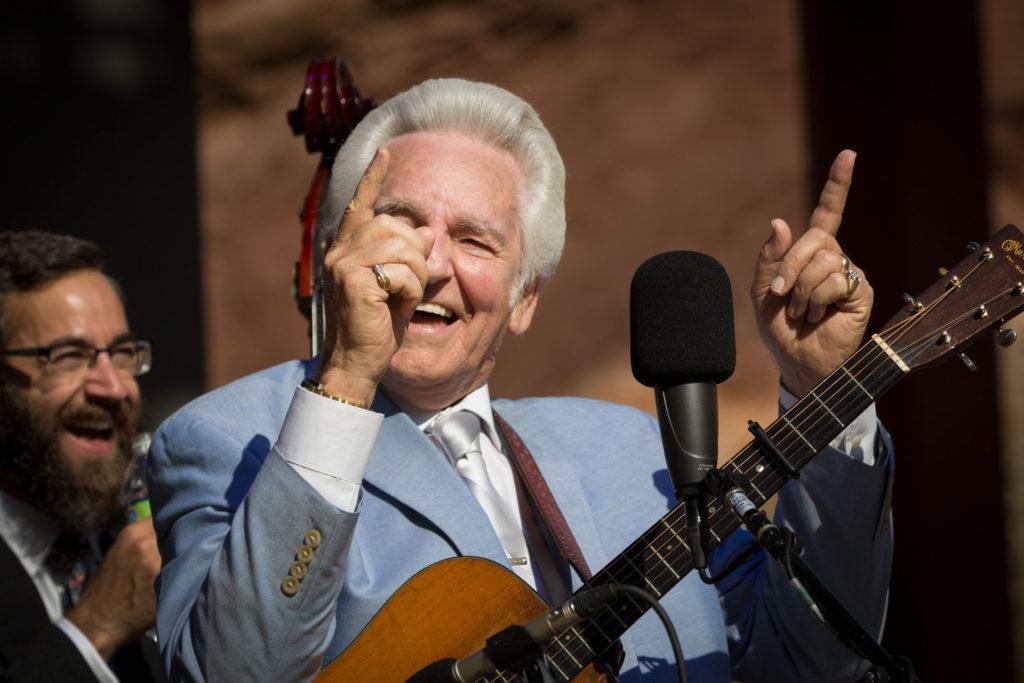
Widespread Panic is a highly-improvisational rock band that frequently performs with an ASL interpreter. Lead singer John Bell said that the first time he saw his music performed in ASL was like the first time he heard his music on the radio.
“It totally messed me up... I’ll sing, and then I’m curious, what does that look like in sign language? So I’d look over at Edie,” said Bell, referring to Edie Jackson, who has been interpreting for the band for 12 years. “And next thing I know, I’m not singing anymore. It’s beautifully distracting. It’s very artistic, the way she is expressing the music too. It’s visually very engaging, so I really have to disconnect and get back to work.”
Concert venues and production companies must provide interpreters upon request, under the Americans with Disabilities Act, which passed in 1990.
An update to the law in 2010 streamlined the purchase of ADA tickets to events and confirmed that venues cannot charge higher prices for accessible seats, but Berman said that it can still require extra legwork.
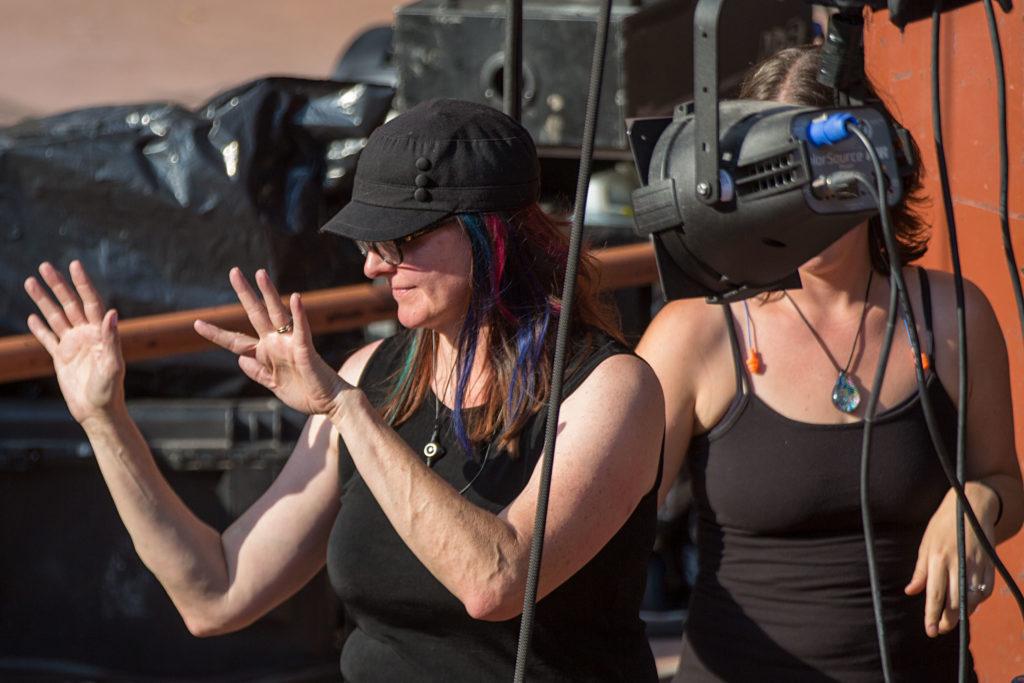
“There are some places who have very odd policies and rules and regulations, such as, if you buy a ticket, you’re not guaranteed to be right in the front with a good view or you’re not guaranteed a certain seat,” she explained. “Typically we need to be in the first or second row... It’s more responsibility on my behalf to have to call and explain, 'Where’s the seat? What does it look like? Where are the interpreters going to be situated?'”
That’s something Austin is also thinking about as she gets ready for a show.
“Part of what we do is we work directly with the venues to educate them on seat placement, on lighting, on the best vantage point for deaf consumers to sit. There’s been quite a learning curve because if you’ve never experienced it before and you don’t kind of understand all the facets that go into a deaf person attending a concert, there’s lots of things to think about,” said Austin.
From translating lyrics to ensuring line of sight and using facial expressions to communicate intensity, it’s all a part of making music in American Sign Language.
“It’s amazing,” said Berman. “I’m able to be a part of the experience, right along with the other hearing people. I can hear the songs, the lyrics. I’m right there.”
Inspired by conversations with people in the community, we're taking a week to produce a short series of stories about Colorado through the lens of languages used here. Here's a story about how important translators are in the maternity ward. Here's one at Denverite about how the attorney general's office is trying to do a better job of serving Colorado's Spanish-speaking fraud victims. And here's one about how Coloradans pronounce their place names in ways you might not expect (or be able to guess)! The series is another way for us to consider our state and who lives here, but it's also a test balloon and a call for feedback and ideas — do you have a language-related story you think we should know about? Let us know: [email protected].
Interview Transcript:
Ryan Warner: This is Colorado Matters from CPR news. I'm Ryan Warner. People who are deaf and hard of hearing go to concerts. Maybe you've seen sign language interpreters at say Red Rocks. As part of our series about life in Colorado through the lens of language, let's meet one of these music fans and an interpreter. Natalie Austin co-founded FLOW, a Denver Agency that specializes in arts interpreting, and Rachel Berman is an American Sign Language instructor. She spoke through an interpreter about what it's like going to concerts .
Berman: It's amazing. I'm able to be part of the experience. I'm right there.
Warner: I think people who are hearing might make assumptions about why people who are deaf go to concerts. They might wonder why you would go to a concert. Help them understand.
Berman: Well, there are a lot of hearing people who seem to think that deaf and hard of hearing people can't enjoy music, and they need to understand that deaf and hard of hearing people have a variety of hearing levels, and it's easy for them to think that they all are completely deaf or profoundly deaf. But there are some people who can hear some, they have some residual hearing, maybe they use a hearing aid, they have a cochlear implant or maybe they don't have anything at all and they can still feel the beat. So everyone has their own preferences, their own ways to enjoy music. And it's very visual. We can see it. Plus we're provided the words through the interpreter. So overall, it's just a different way of viewing and experiencing the music, but we still can enjoy it.
Warner: What is your experience? Is it that you have some hearing or is it vibrational for you both?
Berman: I do use a hearing aid on one side, but it doesn't help me understand the words. It's very blurry. It helps me recognize environmental sounds, what's going on around me, that sort of thing. And it does help me with recognizing music, lower tones, like the base. The higher pitches a little bit more difficult and I struggle with those so I can take advantage of that residual hearing that I have in combination with the visual portions provided by the interpreter. So those two things together help me understand and follow the music.
Warner: Do you prefer particular artists because they use a lot of base?
Berman: Oh yeah. I mean really. I am not a huge music connoisseur, if you will, but I am still exploring. I'm still on a journey with music and figuring out my preferences, but I can tell you that my favorite concert is Metallica. It was very deaf-friendly. I could feel the base. I could feel the beat. Plus the performance was amazing. I think it's important that concerts have great performances in conjunction because if you just have a band, you know, saying the words, they're just singing and not doing a whole lot, maybe you have a couple of instruments -- it's really difficult to connect. But from Metallica when they added that performance plus the drummer and all, you know, all the percussion, the light show that they have going on. It was just such an enjoyable experience.
Warner: I'm so curious, Rachel, if Metallica knows that their music resonates with you as a deaf person, like what a cool thing it would be for the band to learn this about themselves. Yes, yes, yes. That would be awesome. Natalie Austin, you interpreted that Metallica concert at red rocks. How was that?
Natalie Austin: That was one of my favorite concerts to interpret it. Favorite concerts to experience because it was such an accessible performance for so many reasons. Like Rachel mentioned, the fire, the lights, the drumming. You could like feel it in your soul. It was such an incredible show.
Warner: I have a million questions for you about interpreting difficult songs. If an artist is rapping for instance and it's fast and it's improvised, that just sounds like a tough day at work for you. I would agree with you. Yeah. Rap definitely is one of the most difficult genres I would say to interpret because a lot of times when they do improvise it's nonsensical improvisation, and so they're just doing it because the words maybe rhyme with each other, which in sign language that doesn't always translate to something that makes sense to a deaf audience member. So that can be, yeah, like you said, a fun day at work. Okay. Give me an example of a rapper that you've had to interpret for. So Chris Brown was an interesting rapper and then Vanilla Ice was actually, I am a hardcore Vanilla Ice fan, so that was a lot of fun. They did a throwback to the nineties show at Fiddler's Green that had a lot of the old school 90s rappers and so that was a great time.
Warner: I think of one of my favorite bands. Sigur Rós is a band that invents words. So it's not even that the words strung together don't make sense. It's that they're not actual words. What the heck would you do as an interpreter in a situation like that?
Austin: So you provide something visual to go off of. So I interpreted Seussical the musical, for example, our data center.
Warner: That is based on Dr Seuss, who is also an expert at jibberish.
Austin: This is true. And Rachel was actually our language coach for that show. And so it was her responsibility to go through the script and come up with signs for the Dr. Seuss, like as you said, jibberish and come up with ways to make it visually appealing, especially for a children's audience. Because Rachel, you're an educator.
Berman: Yes. I, I teach ASL full time
Warner: Well, this makes me think that interpreting for music is not just about interpreting the words. It's about interpreting perhaps the feel of a song. Do I have that right, Rachel?
Berman: Yes. Yeah. I mean really depends on the audience as well. Who's there? Um, it's a really big challenge for the interpreters to try to gauge the audience members preference. Maybe they prefer more English word order, or do they prefer more ASL, American Sign Language, word order? Do they want to follow those concepts and that message? As for me, I prefer a mix. I like to have the English and the ASL, but they're so completely different.
Warner: Oh this is fascinating. So help us understand, Natalie, that ASL has words in a particular order and English has words in a particular order. You've got to figure out which approach to take.
Austin: That's correct. So before I show, I like to inquire to see who the audience members are and hopefully I know those audience members. And so I know if they prefer more of an English word order, if they prefer more of conceptual signs and ASL word order.
Warner: But are you also interpreting the beat or the swell of a particular instrument?
Austin: 100 percent. Because we interpret a lot of jam bands as well. So you can imagine a lot of that is showing the guitar, showing the drums, and we do a lot of Dead shows. You know, different versions of Dead shows and, 100 percent, you're showing the intensity of the beat because you are providing that access for the deaf audience members. Hearing audience members can sit back to the jam and feel the different levels if it's just a soft jam, when it gets more intensified. So we have to show that through our bodies through replicating the instruments with our hands, and also our facial expressions are a big part of it.
Warner: Gosh, there might be 15 instruments on the stage.
Austin: That is a true story. You've got to decide which one to interpret I suppose whichever is most prominent at a particular moment. I do. Yeah. I listened to hear which one kind of strikes me as being most prominent, and then I'll switch between them as well. So if the keyboard is just as prominent as the bass, you know, I'll do base for awhile. Then I'll show the keyboard for a while. Then I'll switch to the drums, and just to to mix it up for the deaf audience as well to make it visually stimulating so they can see I'm not just, you know, drumming over and over. I'm switching from the drums to the bass to the keyboard.
Warner: Rachel, as someone who prefers an interpreter at a concert, how limited are you to concerts? Like are specific shows or specific venues or can you rely on an interpreter to be virtually anywhere you want to be for a venue?
Berman: It really depends on the venue. As of right now it's getting a lot better. There are more places that are providing interpreters, but you have to request them. You know, sometimes I'm not aware of something going on that may provide an interpreter. So then Natalie's the one who actually tells me, hey, there are some shows are going to have an interpreter there. And I'm like, Oh okay, I'll go. There are some where I have a great relationship with that venue, and I know that there's a great history of them providing an interpreter. So if you were to ask for one, I'd likely be honored. But there's an agency, a Natalie's agency that post different events where interpreters are provided and it's very, very nice to have those options. So I can check out different shows.
Warner: It's not incumbent upon you to pay for that though, right?
Berman: Oh no, no, no. I do not pay out of pocket. The venue is the one who provides that. I just buy the ticket.
Warner: And then is it important where you sit in the venue?
Berman: Yes.
Warner: Does that mean, does that mean good seats?
Berman: Well, sometimes. There are some places who have very odd policies and rules and regulations such as if you buy a ticket, you're not guaranteed to be right in the front with a good view or you're not guaranteed a certain seat. There are some where you are. Because typically we need to be in the first or second row too. So I have to actually double check with the venues. Of course it's more responsibility on my behalf to have to call an explain. Where is the seat? What does it look like? Where is the interpreter going to be situated? That kind of thing. So there is a lot of legwork I have to be responsible for to ensure that my experience is the way it should be.
Warner: Natalie, you specialize in artistic interpretation. How specialized a field is that versus, say, interpreting in a school or in some other place?
Austin: Surprisingly, a lot of interpreters don't enjoy performance interpreting or theatrical interpreting. It's something--I grew up in the theater. I grew up going to concerts, just love music, and have done specialized training to learn how to interpret music, how to interpret concerts.
Warner: Natalie, do you remember the first song you interpreted in ASL?
Austin: I actually do. And so it was for my interpreter preparation program. We were given an assignment to interpret a song, and I chose it's raining men for by the Weather Girls. And that was one of the funnest experiences and just because it's a fun song, I just thought it was hilarious. The concept of men raining from the sky in sign language because sign language is literal. So I literally, men were coming down from above my head, so it was very fun to interpret that song.
Warner: Wait, will you show me that sign,"It's raining men?" Okay, so I'm going to describe this.
Austin: Because you have a man falling from the sky
Warner: So you're making almost like a walking figure with two legs, and he's falling almost like he's on a parachute.
Austin: Yup. It's raining men.
Warner: Okay. I understand that you Natalie, have interpreted Rent, the musical. Yes. Okay. I think of a song, 525,600 Minutes. How hard is it when a number and a sizable one at that comes up in a song?
Austin: That song actually, because the pace of it's quite slow, signing a number isn't complicated. The song in that musical that is complicated is La Vie Boheme, just because it goes so quick and it's slightly nonsensical as well. Some of the things that they talk about are really silly and ridiculous, and so coming up with signs that deaf audience members will understand what you're saying. But they also, because it is nonsensical, they have uh, an equal experience as hearing audience members like, oh, that's so crazy.
Warner: This is an important point. It's not that folks with an interpreter or never confused because it's often that hearing people are confused in a particular setting.
Austin: Correct.
Warner: Yeah, all right. Rachel, What is the next concert you plan to attend?
Berman: Oh yeah. Actually in August, I'm going to One Republic
Warner: A local band, in fact.
Berman: Yes, they are. And I'll, I'll just be honest right now-- I don't know a whole lot about them, but I just picked that concert based on recommendations from friends who have listened to the music, who are hard of hearing and have listened to their music. And they've gone to a lot of their concerts--a lot of concerts--more than I do. And so I asked which concert would you recommend that have that deaf experience plus the music?
Warner: You're going to have a good time. I think they're really good.
Berman: I'm very excited.
Warner: Rachel, thanks for being with us.
Berman: Yes, thank you.
Warner: And Natalie, thanks so much.
Austin: You're welcome.
